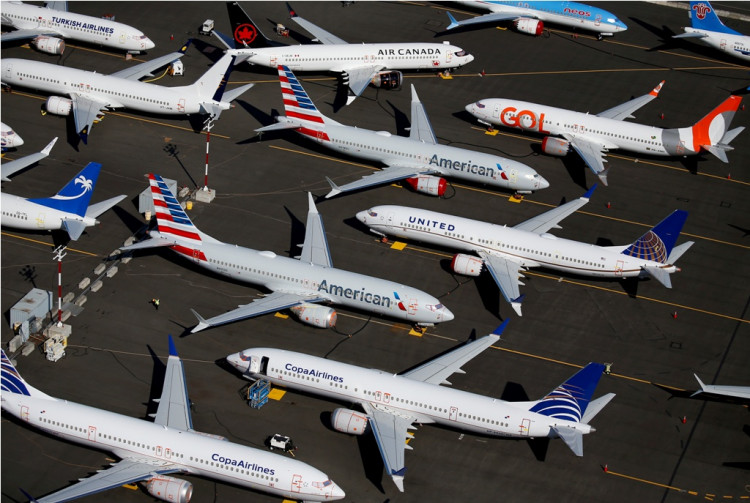The executive director of the European Union Aviation Safety (EASA), Patrick Ky, said on Tuesday that the regulator is expecting to approve the Boeing 737 Max's return to service in January. However, commercial flights may not happen until two months later.
According to CNBC, the European regulator explained that while the approval may take place as early as January, the resumption of commercial flights will not happen right away since proper coordination and "training requirements" are necessary before the grounded jet flies again.
Ky's statements came after Boeing CEO Dennis Muilenburg was questioned by the U.S. Congress and in front of the families of victims who passed away in two crashes involving the 737 Max jet in October 2018 and March.
After the grounding of the jets in March, Boeing said it will work hard to get the aircraft back in the air by the end of this year. Software changes have been integrated into the system but regulators have yet to approve the recertification of the grounded jets.
Ever since the grounding, Boeing has lost millions. Airlines that flew the 737 Max also saw flight schedule problems as they scrambled to complete bookings using different jets.
The U.S. aircraft giant's administration has also been hit hard by the ongoing crisis with the troubled jet. The new chairman, Dave Calhoun, revealed on Tuesday that Muilenburg was told to not take bonuses or stocks in salary this year.
Muilenburg's pay cut came amid a flurry of protests both from the victims' families as well as politicians who questioned the company chief's eligibility following the two crashes under his watch.
It is worth noting that last year, Muilenburg received a total compensation of $23.4 million. A significant chunk of the said total amount was provided to him in the form of bonus money and company shares.
Calhoun clarified that despite ongoing criticism of Muilenburg's administrative powers, the board is confident that the latter has done everything he possibly can to fix the crisis and continue running the troubled company.
While Muilenburg will not be asked to return anything from the payslips he received since he became the CEO in 2015, the pay cut will continue throughout 2020. It remains to be seen how the victims' families, who called for Muilenburg to step down, will react to the latest reveal.
Meanwhile, another Boeing jet is getting attention once more amid the 737 Max crisis. Whistleblower John Barnett said on Wednesday that oxygen systems on the 787 Dreamliner may have issues that would put passengers at risk should a decompression happen.
According to BBC, Barnett claimed that faulty parts in the oxygen systems of the jet in question were still fitted into the planes despite the apparent issues. Boeing denied all of Barnett's allegations.
Barnett, who worked as a quality control engineer for Boeing for over three decades, insisted that the 787 Dreamliner's production was rushed, which could mean that security issues could be present within the aircraft.






